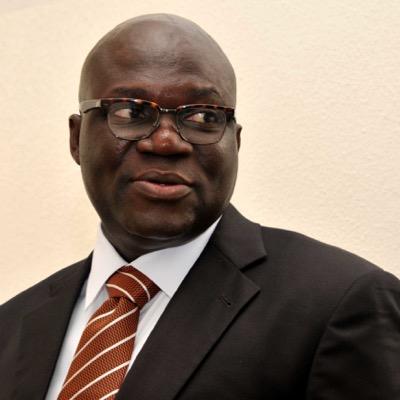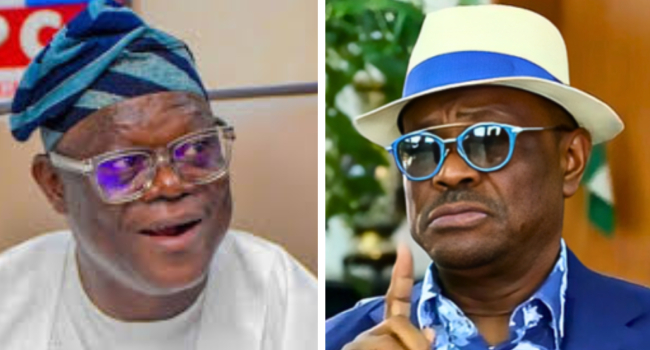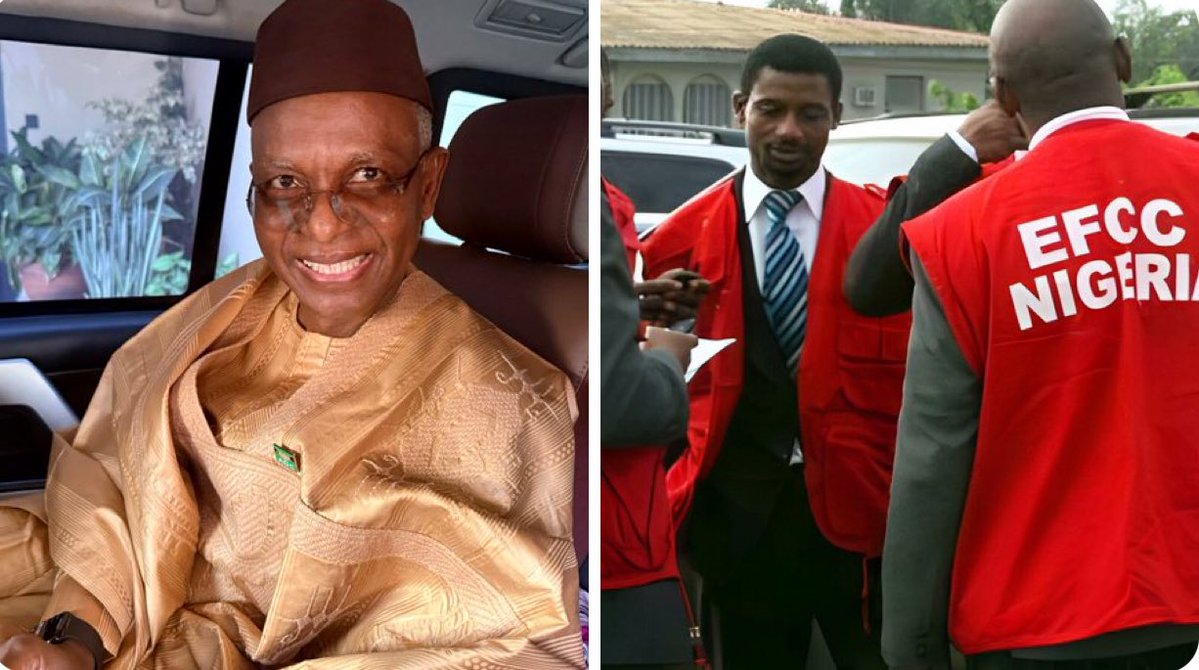By Reuben Abati
This year’s eid-al-fitr, the Muslim festival marking the end of the month of Ramadan, during which Muslims fast for 29 or 30 days, in observance of one of the Five Pillars of Islam, was celebrated on Saturday and Sunday May 23/24, but it was a different kind of eid. It was sombre, low key, and completely over-shadowed by the COVID-19 pandemic. In close to 100 years, there has been no eid like that: the world’s nearly 2 billion Muslims observed the Ramadan under imposed conditions. People were advised to avoid congregational prayers and stay in their homes. On Sunday, many could not observe the traditions of the eid either: the sharing of gifts, visits to family and friends to share goodwill, hugs and handshakes. In countries around the world, persons were advised to shun large gatherings for their own safety. Eid prayers could not be held publicly in Mecca and Medina. The Grand Mosque was noticeably scanty. Earlier, the Saudi Grand Mufti had advised against large congregations.
In Egypt, the usually busy Al-Azhar Mosque in Cairo was empty. In the United Kingdom, the Muslim Council, ahead of the Eid-al-Fitri, advised Muslims to pray at home. In Indonesia, Pakistan, Thailand and Malaysia, congregational prayers were allowed but there was very strict adherence to precautions. In Thailand for example, worshippers who showed up for the Hari Raya, as the eid-al-fitri is otherwise known in that country, Malaysia and in Indonesia had to pass through health officials who checked their temperatures, gave them sanitizing gels, recorded their names and addresses so they can be traced and contacted in the event of a report of community spread of the virus. The people prayed but they kept away from one another. The main thing about COVID-19 is how it has imposed a regimen of observances on human behavior and relationships.
The fact that people are expected to comply or gamble with their lives for failing to do so, is what makes it all so surreal. The mode of compliance varied from one country to the other. The only uniting factor, however, is how on Sunday, the Muslim global community and indeed the entire world was reminded of how so much COVID-19 has disrupted our lives. This sub-text was driven home more poignantly when the New York Times on May 24, decided on a dramatic, all-type concept front page, listing the names and brief descriptions of about 1,000 Americans who had died from COVID-19 related complications. It was the first time in more than 40 years that the New York Times will not have an image on its front page. The published names were compiled from obituary notices in newspapers across the United States by a researcher – Alan Delaqueriere – and put together by a team led by Ms. Simone Landon, Assistant Editor, Graphics. There was also an inside-page essay by columnist, Dan Barry. For me, this was journalism at another level.
The New York Times went beyond the raw data that is quoted daily by Johns Hopkins University which tracks the incidence of COVID-19 in the United States (over 1.6 million confirmed cases, and over 98, 000 deaths – the highest COVID-19 figures in the world!). The newspaper gave names to the statistics and conveyed a sense of the uniqueness of those that died. Whoever reads that list is bound to realize how it is so easy to be alive at one moment, only to end up on a list of corpses in a short moment. The unpredictability of human transitions is what therefore makes it alarming that certain persons knowing how the grim reaper is on rampage, riding the vehicle of a virus, would engage in suicidal and risky behavior.
These were my thoughts as I read the New York Times on the day of the eid-al-fitri, and reflected on the sharp variations in how the eid was celebrated especially in sub-Saharan Africa where religion is a virus of sorts. Whereas North African countries (Morocco, Egypt, Tunisia, Libya and Algeria) where there are high figures of COVID-19 enforced rules of physical distancing, many worshippers South of the Sahara threw caution to the winds, with perhaps the notable exceptions of Ghana and Senegal. In Sudan, before and after the eid, neither the leaders nor the people seemed to have heard of physical distancing. Sudan has the highest number of cases in East Africa with over 100 deaths but nobody seems to care. The people and their leaders certainly did not care during this year’s eid-al-fitri. Inflation is over 100% in Sudan. Health workers have no access to Personal Protective Equipment. The World Health Organization (WHO) should watch that country closely.
In Tanzania, a country that has been “Magufulifized” to paraphrase the eminent Kenyan Professor, PLO Lumumba, the leaders pretended to be aware of the need for physical distancing but the worshippers who trooped to mosques in Dodoma and elsewhere in the country could not be bothered. As in Sudan, the mismanagement of the COVID-19 pandemic could be traced to the failure of leadership. President John Magufuli of Tanzania held much promise when he assumed office five years ago, but he has since derailed confirming indeed that his reform agenda is a double-edged sword of progressivism and dictatorship/primitivism. He insists that there has been a reduction in the number of COVID-19 cases in Tanzania, but this is not based on data. Tanzania stopped releasing COVID-19 figures and suspended daily briefings on April 21 because Magufuli is convinced that such briefings cause panic among the populace. He also insists that testing cannot be trusted, having discovered that even fruits and goats have tested positive due to faulty test kits. The Africa Centre for Disease Control and the US Embassy in the country have warned about the extremely high risk that Tanzania constitutes, especially to the neighbouring countries of Kenya, Zambia and Uganda. Healthcare workers in Tanzania cannot even express an opinion because under Magufuli, it is a crime to have independent thoughts. On eid-el-fitri day, Muslims in Tanzania simply followed his lead and ignored the reality of COVID-19.
In not too far away Burundi, the management of COVID-19 is not any better. Burundi is officially a secular state. Muslims constitute a minority, previously thought to be only 1% of the population but now considered to be about 5-8% after the last post-civil war census. The big problem with Burundi in the face of COVID-19 is the total refusal of President Pierre Nkurunziza to come to terms with the fact that the pandemic is real. Last week, the country held a Presidential election, a stage-managed election which was rigged to produce the candidate of the ruling party, the CNDD-FDD as winner with 68.72%. The CNDD-FDD’s candidate, Evariste Ndayishimiye was once Chief of Staff to Nkurunziza who wants to retire from office and retain the pompous title of “Supreme Guide to Patriotism”. The new President will be required to consult the “Supreme Guide” on matters of national security and unity. Nkurunziza has apparently forgotten what happened to former Angolan President Eduardo dos Santos whose delusion of indispensability eventually led to his humiliation.
I digress slightly. The point I am really trying to make is that in Burundi, not even the country’s Muslim population had any need to worry about COVID-19. Before the eid, the government of Burundi expelled World Health Organization officials from the country on the ground that they had become “persona non grata.” International election observers and monitors were informed that they would be quarantined if they showed up in the country to observe any election. The international community stayed away.
Now let us switch the lens to Nigeria. Days before the eid-al-fitri 2020, the Nigerian Government on May 4 eased restrictions that had been imposed by the Federal Government on Ogun, Lagos states and the Federal Capital Territory, not for religious reasons, but as part of a “phased and gradual process” of re-opening the Nigerian space while also addressing the multi-faceted challenges of COVID-19. State governments also began to relax the restriction orders in their states, with the entire country bound to enforce the uniform ban on inter-state travel and the emplacement of a nationwide curfew from 8 pm to 6 am. There were specific regulations and guidelines for restaurants, places of religious worship, human relationships, work place protocols etc. There was a big push-back from ordinary Nigerians who had grown weary of the lockdown, as well as pundits and business owners who felt that the lockdown will not work in Africa but the biggest resistance came from religious leaders especially Pentecostal church leaders who argued from all corners of their mouths about either 5G technology or the damage that the lockdown was doing to the church economy. There were exceptions though: on the mainstream Christian side- the Catholic Church, the Christian Association of Nigeria (CAN), and on the Pentecostal side: Pastors Enoch Adeboye, Tunde Bakare, Sam Adeyemi and Paul Adefarasin…
If Muslim leaders were opposed to the lockdown, they were quiet with their objections. The Christian leaders were loud and aggressive. One of them even said if government could allow markets to re-open, churches should also be re-opened. However, the fact that Muslim leaders were also not entirely quiet soon became evident as many states in the North began to announce that religious worship was in order, and that mosques and churches could re-open even as COVID-19 figures in Nigeria increased geometrically. In due course, these states: Kano, Bauchi, Taraba, Nasarawa, Gombe, Yobe, Niger, Adamawa, Cross River, Delta… lifted the ban on worship centres, with the convenient caveat of course that the rules of physical distancing and (2) attendance relative to building capacity and (3) the threshold of 20 persons per gathering must be respected. All the Governors claimed that they were responding to pressures from religious leaders. The Governor of Kano claimed he was advised by Islamic Scholars. The Council of Ulamas in Kano State insisted that they were not consulted. The Sultan of Sokoto, the Head of the Muslim Ummah in Nigeria and head of the Nigeria Supreme Council for Islamic Affairs (NSCIA) issued a statement directing all Muslims in Nigeria to observe the eid prayers at home, because the eid-al-fitri is not fard (that is obligatory). President Muhammadu Buhari also issued a statement saying nobody should visit him to pay eid homage as is customary and that people should pray at home.
But in reality, what Nigeria and many other countries in sub-Saharan Africa are faced with is the threat of an exponential rise in COVID-19 cases post eid-al-fitri. In Kano state which is second on the Nigerian COVID-19 League Table, the guidelines were observed more in the breach. The Kano elite at the prayer grounds hypocritically tried to maintain social distancing but nobody provided minimum care for the ordinary people who risked their lives in the name of religion. In Minna, Niger state, there was reportedly a heavy downpour. People abandoned their masks and rushed into the mosque where they huddled together. The Nation newspaper (Nigeria, May 25) reports that Southern Muslims in Nigeria observed the eid in their homes. In the Northern part of the country, where the Northern Governors Forum most recently announced that the region accounts for 54% of reported cases, and 70% of fresh infections, the prayer grounds were unlocked from Kano to Borno, by the same leaders who had only a few days earlier acknowledged a brewing crisis in their region. Does that make sense?
I have tried to paint the picture above simply to revisit the commendation that Africa has received for beating the world’s expectations with regard to COVID-19 sero-prevalence. The eid celebration is merely a peg. At a recent Africa.Com Webinar Series 6 with the theme: “What’s the real story behind Africa’s COVID-19 figures?”, the WHO Regional Director Ms Rebecca Moeti expressed enthusiasm about the fact that whereas WHO expected higher COVID-19 cases in Africa, the numbers have been lower than expected. She praised African countries. Both the WHO DG and the UN Secretary General have also had cause to commend Nigeria. The praise for Africa may be premature. It is not justified by the attitude of many of the leaders and the behaviour of the people. Could the real story in Africa be – that not enough testing is being done resulting in gross undercount or that corruption has further mutated COVID-19 into a strain that is yet unknown to the world? Or is the virus un-African? These are the key questions.

 News5 days ago
News5 days ago
 Headline5 days ago
Headline5 days ago
 Featured4 days ago
Featured4 days ago
 Featured4 days ago
Featured4 days ago
 Headline6 days ago
Headline6 days ago
 National5 days ago
National5 days ago
 Featured3 days ago
Featured3 days ago
 News3 days ago
News3 days ago

























